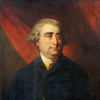Charles James Fox

Charles James Fox
Charles James Fox PC, styled The Honourable from 1762, was a prominent British Whig statesman whose parliamentary career spanned 38 years of the late 18th and early 19th centuries and who was the arch-rival of William Pitt the Younger. His father Henry, a leading Whig of his day, had similarly been the great rival of Pitt's famous father. He rose to prominence in the House of Commons as a forceful and eloquent speaker with a notorious and colourful private life,...
NationalityEnglish
ProfessionPolitician
Date of Birth24 January 1749
Charles James Fox quotes about
Peace is the wish of the French of Italy Spain Germany and all the world, and Great Britain alone the cause of preventing its accomplishment, and this not for any point of honour or even interest, but merely lest there should be an example in the modern world of a great powerful Republic.
Men are entitled to equal rights-but to equal rights to unequal things.
Toleration in religion was one of the great rights of man, and a man ought never to be deprived of what was his natural right.
Persecution always says, 'I know the consequences of your opinion better than you know them yourselves.' But the language of toleration was always amicable, liberal, and just: it confessed its doubts, and acknowledged its ignorance ... Persecution had always reasoned from cause to effect, from opinion to action, [that such an opinion would invariably lead to but one action], which proved generally erroneous; while toleration led us invariably to form just conclusions, by judging from actions and not from opinions.
the question now was...whether that beautiful fabric [the English constitution]...was to be maintained in that freedom...for which blood had been spilt; or whether we were to submit to that system of despotism, which had so many advocates in this country.
What acquaintance have the people at large with the arena of political rectitude, with the connections of kingdoms, the resources of national strength, the abilities of ministers, or even with their own dispositions?...I pay no regard whatever to the voice of the people: it is their duty to do what is proper, without considering what may be agreeable.
Opinions become dangerous to a state only when persecution makes it necessary for the people to communicate their ideas under the bond of secrecy.
The worst of revolutions is a restoration.
All political power is a trust.
He was uniformly of an opinion which, though not a popular one, he was ready to aver, that the right of governing was not property, but a trust.
Kings govern by popular assemblies only when they cannot do without them.
a greater evil than the restoration of the Bourbons to the world in general, and England in particular, can hardly happen.
I prefer the hardest terms of peace to the most just war.
So fully am I impressed with the vast importance and necessity of attaining what will be the object of my motion this night, that if, during the almost forty years that I have had the honour of a seat in parliament, I had been so fortunate as to accomplish that, and that only, I should think I had done enough, and could retire from public life with comfort, and the conscious satisfaction, that I had done my duty.